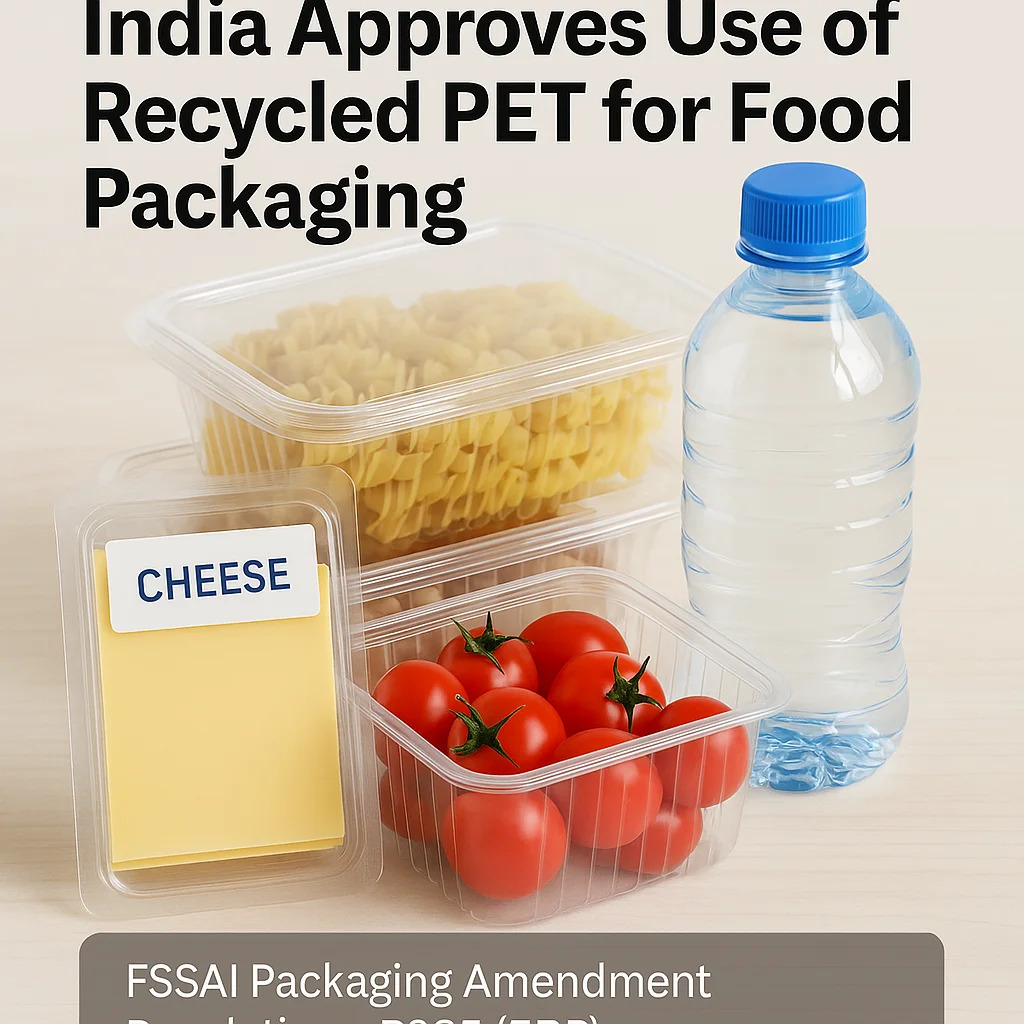
In a landmark move toward sustainable packaging, the Food Safety and Standards Authority of India (FSSAI) has officially greenlit the use of recycled polyethylene terephthalate (PET) in food packaging. The announcement, published in the official Gazette on March 28, 2025, marks a significant regulatory shift aimed at reducing plastic waste and supporting a circular economy.
The amendment—titled Food Safety and Standards (Packaging) First Amendment Regulations, 2025—modifies clause 4(4)(e) of the 2018 Packaging Regulations. It now explicitly permits recycled PET (rPET) to be used for packaging, storing, carrying, or dispensing food products, provided it complies with strict quality and safety standards to be notified by the Authority.
“Only products made of recycled polyethylene terephthalate (PET) shall be used for packaging, storing, carrying, or dispensing articles of food as and when standards and guidelines are notified by the Food Authority,” states the amended regulation.
From Draft to Reality
The decision follows a public consultation process initiated by FSSAI in May 2022, during which stakeholders were invited to submit feedback and concerns. After a thorough review, the Authority moved forward with formalizing the amendment, reflecting a consensus on the need for regulatory frameworks that balance food safety with environmental stewardship.
A Turning Point for the Packaging Industry
India’s approval of recycled PET in food-grade applications is being hailed as a pivotal moment by both environmental advocates and packaging industry leaders. Recycled PET is widely used in other parts of the world, including the EU and U.S., for its favorable material properties and significantly lower carbon footprint compared to virgin plastics.
The amendment is expected to open new avenues for sustainable packaging innovation, reduce reliance on virgin plastic resins, and boost investments in high-quality plastic recycling infrastructure.
Industry Response and Next Steps
While the amendment grants legal clearance for the use of rPET in food packaging, its implementation hinges on the notification of technical standards and safety guidelines. Industry players are now awaiting clarity on specifications related to recycling processes, contaminant limits, and traceability requirements.
Experts have called for a robust monitoring framework to ensure that only high-quality, food-grade rPET enters the supply chain. The move also presents opportunities for India’s recycling sector to upgrade technologies and processes to meet global benchmarks.
India’s Circular Economy Push
The decision aligns with India’s broader environmental goals, including commitments under the Extended Producer Responsibility (EPR) framework and the Plastic Waste Management Rules. With packaging waste forming a major component of urban solid waste streams, enabling food-safe recycled plastic is seen as a practical and impactful reform.
Read full Packaging_Amendment Regulations, 2025 related to recycled plastic (Click to view PDF)







